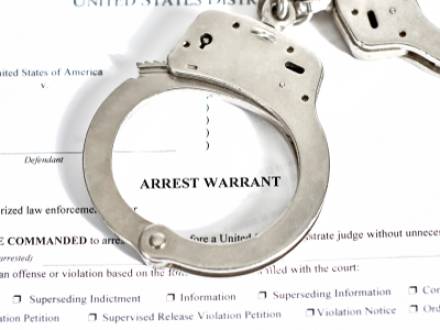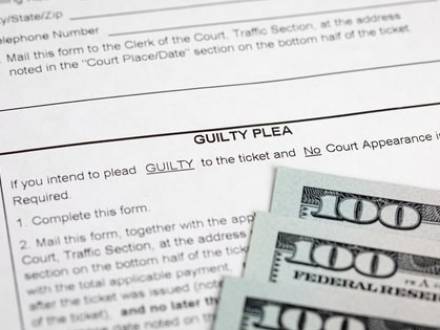Recent Blog Posts
New Wisconsin Bill Would Make Revocation Mandatory
 More than 60,000 residents across the state of Wisconsin are currently under community supervision – about three to four times the number of those in prison. Community supervision means the individual has been sentenced to probation as an alternative to jail or is under parole with extended supervision following his or her prison sentence completion. Community supervision is usually preferable for those facing criminal offense sentencing, which could equal months or years in prison.
More than 60,000 residents across the state of Wisconsin are currently under community supervision – about three to four times the number of those in prison. Community supervision means the individual has been sentenced to probation as an alternative to jail or is under parole with extended supervision following his or her prison sentence completion. Community supervision is usually preferable for those facing criminal offense sentencing, which could equal months or years in prison.
A public hearing on April 1 for a bill that could change the way community supervision works gave little indication as to whether the bill would pass. Each year, thousands of people who are found to have violated the conditions of their community supervision are sent back to prison under revocation. The new bill would make revocation mandatory if the person under community supervision is charged with a new offense.
When Is an Insanity Defense Appropriate for Homicide Charges?
 Many people believe an insanity defense is nothing more than a way for a murderer to avoid prison. In fact, one study found that only 12.5 percent of those surveyed were confident in testimony given by psychiatrists in court regarding the mental status of a homicide defendant, while 87.1 percent saw the insanity defense as nothing more than a "loophole to exploit." Four states across the U.S. (Idaho, Kansas, Utah, Montana) do not currently allow the insanity defense as a homicide defense. Others, including Wisconsin, are very specific regarding the use of the defense.
Many people believe an insanity defense is nothing more than a way for a murderer to avoid prison. In fact, one study found that only 12.5 percent of those surveyed were confident in testimony given by psychiatrists in court regarding the mental status of a homicide defendant, while 87.1 percent saw the insanity defense as nothing more than a "loophole to exploit." Four states across the U.S. (Idaho, Kansas, Utah, Montana) do not currently allow the insanity defense as a homicide defense. Others, including Wisconsin, are very specific regarding the use of the defense.
Yet, when you hear a news report like the recent one about a Wisconsin teen who allegedly killed his mother and stepfather and then lived with the corpses for two weeks, it seems that the insanity defense definitely should have a place in the defense of some individuals accused of homicide. (The teen has been charged with two counts of first-degree intentional homicide, along with other charges, and is awaiting a preliminary hearing on April 9th).
Is Neglecting a Child a Felony Offense in Wisconsin?
 A Racine, WI man is facing charges involving drugs, weapons, and child neglect after the police raided his home during a drug investigation. The 55-year-old man was charged with Possession of Cocaine with Intent to Deliver, Possession of THC with Intent to Deliver, Maintaining a Drug Trafficking Place, Neglecting a Child (no specified harm to the child), and two counts of Possession of a Firearm by a Felon.
A Racine, WI man is facing charges involving drugs, weapons, and child neglect after the police raided his home during a drug investigation. The 55-year-old man was charged with Possession of Cocaine with Intent to Deliver, Possession of THC with Intent to Deliver, Maintaining a Drug Trafficking Place, Neglecting a Child (no specified harm to the child), and two counts of Possession of a Firearm by a Felon.
The doors to the home were "fortified," and there were four other people in the home at the time of the raid, including an eight-month-old child and a bedridden man. There were also five dogs in the home. Two guns were found in a bedroom – one of them in the baby’s crib. Cash bail was set at $10,000 with an arraignment on April 3.
While all these charges are very serious, the child neglect charge could potentially be either a serious misdemeanor or a felony. In situations like this, the prosecutor may sometimes overcharge the defendant in an attempt to convince him or her to take a plea deal. If you find yourself facing serious charges, it is essential to consult a knowledgeable Ozaukee County, WI, criminal defense attorney as soon as possible.
Is Swatting a Criminal Offense in Wisconsin?
 A Wisconsin man recently pled guilty to federal charges of swatting after spending a week with friends on a swatting spree that involved gaining access to Ring home security door cameras. Once he gained access, he placed bogus emergency phone calls that would bring an armed police response, livestreaming the events on social media. The young man pled guilty to one count of conspiracy and two counts of unauthorized access to protected computer information. The investigation was handled by the FBI because the crime crossed state lines, making it federal.
A Wisconsin man recently pled guilty to federal charges of swatting after spending a week with friends on a swatting spree that involved gaining access to Ring home security door cameras. Once he gained access, he placed bogus emergency phone calls that would bring an armed police response, livestreaming the events on social media. The young man pled guilty to one count of conspiracy and two counts of unauthorized access to protected computer information. The investigation was handled by the FBI because the crime crossed state lines, making it federal.
You may have heard the term "swatting" recently in the news. Swatting is a form of criminal harassment that involves deceiving an emergency service (police, firefighters, EMS) into sending a response team to another person’s address when that person does not need assistance. Swatting diverts crucial police, ambulance, and firefighter resources from those who really need them. Swatting can be charged as a federal or state crime; if you have been charged with this offense, it is important that you speak to a skilled Racine County, WI criminal defense lawyer.
What Penalties Could You Face for a Fourth OWI in Wisconsin?
 In 2022, there were nearly 23,000 convictions for Operating While Intoxicated (OWI) driving offenses. Every two hours across the state, someone is injured or killed in an impaired driving crash. While many of the people charged with OWI learn their lesson and never drive while intoxicated again, others are slower to learn.
In 2022, there were nearly 23,000 convictions for Operating While Intoxicated (OWI) driving offenses. Every two hours across the state, someone is injured or killed in an impaired driving crash. While many of the people charged with OWI learn their lesson and never drive while intoxicated again, others are slower to learn.
Recently, a Madison woman was arrested for her fourth OWI offense after driving off the road and crashing her vehicle. After undergoing field sobriety tests, the woman was arrested for her fourth offense of Operating a Motor Vehicle While Intoxicated (OWI).
While facing the first OWI offense is serious enough, the penalties increase with each subsequent OWI charge. Nobody is in favor of driving under the influence of alcohol or drugs, yet in some cases, an individual does not deserve to be arrested, or the arrest may have been unlawful. The police officer may not have had probable cause to pull a person over or may have denied the person his or her constitutional rights.
What Are the Penalties for Felon in Possession of a Firearm?
 While there are few state statistics regarding charges for "felon in possession of a firearm," federal statistics show that in 2018, there were 6,719 convictions for this offense. Of those, 97.7 percent were men with an average age of 34. Tennessee, Alabama, and Missouri had the highest rates of felon in possession of firearm charges and convictions.
While there are few state statistics regarding charges for "felon in possession of a firearm," federal statistics show that in 2018, there were 6,719 convictions for this offense. Of those, 97.7 percent were men with an average age of 34. Tennessee, Alabama, and Missouri had the highest rates of felon in possession of firearm charges and convictions.
Wisconsin has severe penalties for felon in possession of a firearm, charging the offense as a Class G felony. If you have been charged with this criminal offense, it is extremely important that you discuss your charges with an experienced Jefferson County, WI criminal defense attorney.
What Constitutes a Felon in Possession of a Firearm?
Section 941.29(1M) of the Wisconsin Statutes governs felon in possession of firearm charges and penalties. To be charged with this criminal offense, one of the following must have occurred:
What Are the Differences Between a Bench and Arrest Warrant?
 Wisconsin law details two types of criminal warrants: arrest warrants and bench warrants. While both serve the same purpose - apprehending a person - they are each used for different reasons. If you have had any brushes with the legal system, including an arrest, you may have experienced either an arrest warrant or a bench warrant and may have contacted a criminal defense attorney. Below, you will see the differences between the two. Contacting an experienced Walworth County, WI criminal defense attorney can ensure you receive an aggressive defense no matter what type of crime you are being charged with.
Wisconsin law details two types of criminal warrants: arrest warrants and bench warrants. While both serve the same purpose - apprehending a person - they are each used for different reasons. If you have had any brushes with the legal system, including an arrest, you may have experienced either an arrest warrant or a bench warrant and may have contacted a criminal defense attorney. Below, you will see the differences between the two. Contacting an experienced Walworth County, WI criminal defense attorney can ensure you receive an aggressive defense no matter what type of crime you are being charged with.
What Is A Wisconsin Arrest Warrant?
An arrest warrant gives law enforcement the green light to seek out and apprehend a person suspected of committing a criminal offense. After law enforcement presents evidence and sworn statements to a judge or magistrate, he or she will determine whether there is sufficient probable cause for a warrant. If that question is decided in the affirmative, an arrest warrant will be issued.
Are Traffic Citations Involving School Buses More Serious?
 Recently, a driver slammed into the back of a stopped school bus in Waupaca County as the bus was letting off children after school. Thankfully, no children were seriously injured, and while the driver of the pickup was not charged criminally, he received four traffic citations: Failure to stop for a school bus, reckless driving endangering safety, operating a vehicle with a suspended license, and failure to have a vehicle properly registered. He faces fines of $1,676.00.
Recently, a driver slammed into the back of a stopped school bus in Waupaca County as the bus was letting off children after school. Thankfully, no children were seriously injured, and while the driver of the pickup was not charged criminally, he received four traffic citations: Failure to stop for a school bus, reckless driving endangering safety, operating a vehicle with a suspended license, and failure to have a vehicle properly registered. He faces fines of $1,676.00.
In the state of Wisconsin, drivers can be ticketed for school-bus-related violations without being pulled over by a police officer. School bus drivers can send their own reports to the police, resulting in a ticket for the driver. Failure to stop for a school bus was among the top 50 traffic citations issued across the state of Wisconsin. If you are facing a traffic citation relating to a school bus, it is a good idea to speak to an experienced Racine County, WI traffic violation attorney to discuss your options.
How Can a Criminal Defense Lawyer Get Your Charges Dropped?
 Anyone who has ever faced criminal charges knows it can be one of the most overwhelming, daunting experiences in their life. Uncertainty can feel like it has taken over your entire life. Will you be convicted? Will you have to go to jail or prison? (That alone is a terrifying scenario). How will a criminal conviction impact the rest of your life?
Anyone who has ever faced criminal charges knows it can be one of the most overwhelming, daunting experiences in their life. Uncertainty can feel like it has taken over your entire life. Will you be convicted? Will you have to go to jail or prison? (That alone is a terrifying scenario). How will a criminal conviction impact the rest of your life?
In addition to the criminal penalties you may face, there are many collateral damages you could also face. You could lose your current job and be unable to secure employment after you have served your sentence. Criminal charges and convictions can destroy your financial security. If you are convicted of a felony offense, you may be unable to obtain a professional license, rent an apartment, obtain a federal student loan for college, work with children, or even vote or own a firearm.
For all of these reasons, it is critical that you have the best, most experienced Jefferson County, WI criminal defense attorney as your legal advocate. You need an attorney who will fight for you and your future and one who will look at every aspect of your charges to determine whether mistakes were made that could lead to having your charges dropped.
Charges of Negligent Homicide by Operation of a Motor Vehicle
 A Janesville, WI man was recently found guilty of second-degree reckless homicide and negligent homicide by operation of a motor vehicle. After crossing the center line while driving, he crashed into an oncoming car, causing a collision that resulted in the death of another driver.
A Janesville, WI man was recently found guilty of second-degree reckless homicide and negligent homicide by operation of a motor vehicle. After crossing the center line while driving, he crashed into an oncoming car, causing a collision that resulted in the death of another driver.
The man’s trial lasted four days before a Rock County jury found him guilty of the charges against him. He admitted to consuming alcohol before the crash, and alcohol was found in his system several hours after the crash. The defendant could face up to 15 years in prison and up to 10 years of extended supervision.
Negligent homicide by operation of a motor vehicle and second-degree reckless homicide are very serious charges with serious penalties. If you should find yourself facing such charges, it is important that you have an experienced Racine County, WI criminal defense attorney who will vigorously defend your charges.














 262-446-9222
262-446-9222 262-446-9885
262-446-9885






